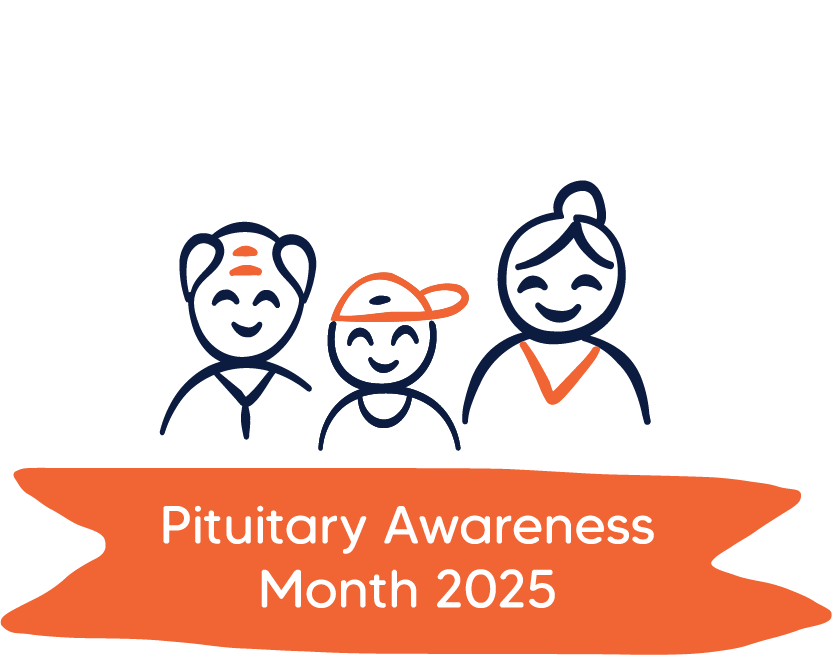Having a pituitary condition may impact your ability to work, or change what kind of work you’re able to do. If you’ve been diagnosed with a pituitary condition, it can take time to understand what impact this may have on your working life.
Some people are able to return to work as normal once they are stable on treatment or post-surgery. Others may need to make big changes to the way they work, or may feel that work is no longer something they can do. Whatever you decide and however you feel, we’re here to support you and help you feel prepared for life after a diagnosis of a pituitary condition.
What if I want to continue working?
Working can be a positive experience in itself, for your own self-esteem and social interaction. In most cases, employment is necessary for financial reasons. If you want to continue with work after a diagnosis or treatment, there is support available to help you do this.
Support in the workplace
Many pituitary conditions are considered disabilities, meaning you are legally entitled to reasonable adjustments at work to help you continue to do your job. You can read more about reasonable adjustments below.
Reasonable adjustments
Reasonable adjustment are changes that employers should make to reduce or remove disadvantages in the workplace related to a person’s disability. Reasonable adjustments are specific to individual people and should be discussed and agreed on between the employee and employer.
By law, employers must make reasonable adjustments and these adjustments can cover any area of work. Employees may need reasonable adjustments to help with physical or mental health problems.
This may mean:
- Providing you with equipment, services or support (such as larger monitors, access to quiet/private space to rest or take medication, or assisstive technology)
- Making changes to a person’s workplace (like adding ramps, accessible toilets or accessible parking)
- Making changes to a person’s work pattern (such as compressing, reducing or altering work hours, allowing flexible working arrangements or allowing time off to attend appointments or for sick leave)
- Changing your job role or responsibilities
How do I know if my pituitary condition counts as a disability?
You’re recognised as disabled under the Equality Act 2010 if you have a physical or mental impairment that has a ‘substantial’ and ‘long-term’ negative effect on your ability to do normal daily activities.
What ‘substantial’ and ‘long-term’ mean
- ‘substantial’ is more than minor or trivial, for example it takes much longer than it usually would to complete a daily task, like getting dressed
- ‘long-term’ means 12 months or more
You can read more about this here.
There are legal frameworks in place to protect workers with long-term health conditions that classify as a disability. You can watch the video below to find out more about this.
Covered in the video below:
- Legal definitions of disability and how long-term conditions relate to this
- How a long-term health condition or disability may impact your ability to work
- What legal protections are in place to protect disabled workers, and what employers should do to support you
- How to request support from your employer
Talking to work about your pituitary condition
Talking to your work about your pituitary condition can be helpful. It can help them understand what support you may need and why. This is particularly important if you want to receive reasonable adjustments at work. It may also be necessary to have someone at work, such as a first aider, know about your condition and any emergency medication you take.
If you are finding it difficult to explain your condition and its impacts to your employer, a letter from your consultant can help. Most consultants are happy to provide these letters and will know what to do to help with this. The Pituitary Foundation also has a template ‘proforma’ letter that consultants can personalise with your health details and send to your employer. Please note, your consultant will need to request this letter directly from us, as we cannot provide it to patients.
If you are having significant difficulty communicating with your consultant and are also having employment issues, then you need to discuss this with your Disability Employment Advisor. You can normal find these at your local Job Centre.
Where to find more support
Access to Work Scheme
The government runs ‘Access to Work’, which is a scheme that can help you get or stay in work if you have a physical or mental health condition or disability. The support you get will depend on your needs.
Equality Act 2010
The following applies if you are classed as disabled under the 2010 Equality Act (or the Disability Discrimintation Act 1995 in Northern Ireland):
- Employees are entitled to reasonable adjustments at work
- Employers must avoid disability discrimination
- Absences related to your condition may be classed as disability-related leave, rather than standard sick leave
ACAS
ACAS gives employees and employers free, impartial advice on workplace rights, rules and best practice.
What if I need to stop working?
Your pituitary condition may mean that you are no longer able to work, or you may decide to stop working to better manage your condition. Whatever your situation, stepping back from work can cause worry, particularly around money.
If you have to stop working because of your condition, you may be able to receive benefits to support your living costs.
Turn2us has an online benefits calculator that you can use to work out any benefits you’re entitled to. You can also meet with a local benefits advisor to talk about this. Citizens Advice Bureau also provide advice about benefits and workplace rights.
Disability Rights UK and Scope are UK charities that have information for disabled people about benefits and workplace support.
What benefits could you be entitled to?
The following video covers types of benefits available in the UK, and who can claim these. There are lots of different types of benefits available to support your living costs. Watch the video now to see if you could be eligible.













